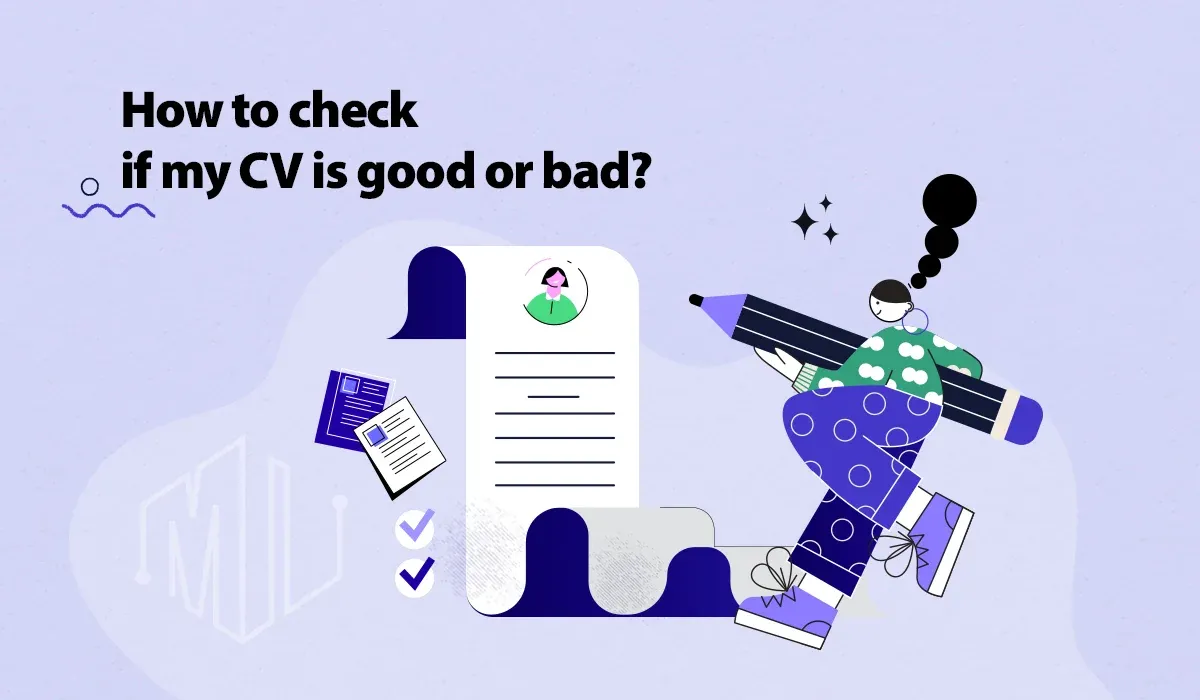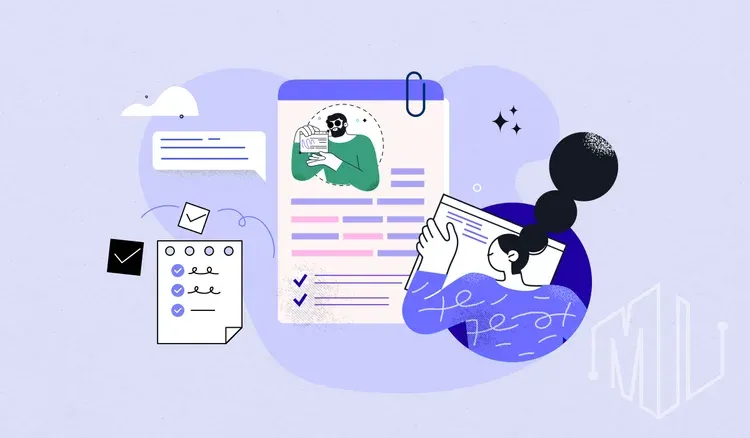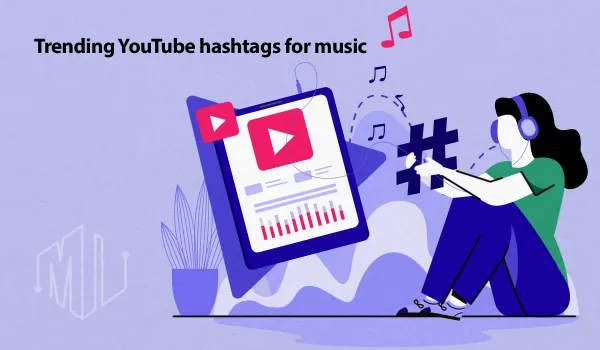How to Assess the Quality of Your CV?
Learn how to assess the quality of your CV with essential tips. Identify strengths and weaknesses to enhance your chances with employers.

Navigating the job market effectively requires a standout CV. It's your first impression of potential employers and a key to unlocking job interviews.
This comprehensive guide, enriched with expert insights, aims to help you create a CV that not only passes the initial screening but also makes a lasting impact.
✨ Unleash the Power of AI with MagicalAPI!
Whether you’re optimizing YouTube content, extracting LinkedIn data, or evaluating resumes, MagicalAPI is your one-stop solution! Discover the diverse range of AI services tailored to meet your every need. Dive in and elevate your digital experience today!

What Should I Include on My CV?
Crafting a CV requires careful consideration of what to include to make a strong impression on potential employers. Here’s a guide to essential elements:
- Contact Information: Start with your name, phone number, email, and LinkedIn profile.
- Professional Summary: A brief statement that highlights your career goals and qualifications.
- Work Experience: List your previous roles, focusing on responsibilities and achievements relevant to the job you’re applying for.
- Education: Include your academic background along with any certifications or special training.
- Skills: Both hard and soft skills relevant to the job.
- Additional Sections: Volunteer work, languages, publications, or projects, if relevant.
Remember, the key is relevance. Tailor your CV to match the job description, and ensure it passes ATS systems by using appropriate keywords and clear formatting.
How Can I Make My CV More Noticeable?
To make your CV stand out, consider these strategies:
- Optimize for ATS: Ensure your CV is formatted correctly for ATS scanning. Use a simple, clean layout and include keywords relevant to the job description.
- Highlight Achievements: Focus on quantifiable achievements rather than just listing duties. Use numbers and statistics to demonstrate your impact.
- Customize for the Job: Tailor your CV for each application. Align your skills and experience with the job requirements.
- Professional Presentation: Use a clear, professional format. Stick to standard fonts and avoid overly creative designs that might not be ATS-friendly.
- Continuous Updates: Keep your CV updated with new skills, experiences, and accomplishments. A current CV is more likely to grab attention.
By following these tips, you can increase the chances of your CV getting noticed by recruiters and passing through ATS systems.
5 ways to Customizing Your CV for Each Job Application
- Understanding the Need for Customization
First things first, why should you customize your CV? Well, it's a way to show your genuine interest in the job and the company. Imagine how many applications hiring managers receive. Customizing your CV sets you apart as a dedicated candidate who's taken the time to align their qualifications with the role. - Reviewing the Job Description
Start by thoroughly reading the job description multiple times. Make a list of keywords, skills, qualifications, and specific responsibilities mentioned in the job posting. This list will be your guide for tailoring your CV. - Adjusting Your Skills Section
Now, about your skills section – it needs to align with the job's specific requirements. Categorize your skills into "Required Skills" and "Preferred Skills" to clearly indicate which ones are essential. - Showcasing Relevant Achievements
When it comes to achievements, think about how to modify your CV to showcase accomplishments that align with the job. Use quantifiable metrics or numbers to demonstrate the impact of these achievements. - Addressing Gaps or Irrelevant Experience
If you have employment gaps or experiences that don't directly relate to the job, here's what you can do: emphasize transferable skills gained during those gap periods, and find ways to present experiences in a way that still demonstrates valuable skills.
Should I Provide Detailed Information about My Past Work Experience?
Yes, providing detailed information about your past work experience is essential in a CV. Here's why:
- Showcases Your Achievements: Detailed work experience allows you to highlight specific achievements and how you added value in previous roles.
- Demonstrates Your Skills: Detailed descriptions help illustrate the application of your skills in real-world scenarios, which is crucial for potential employers.
- Helps with ATS: Including relevant keywords and detailed work experience can help your CV pass through ATS, which often scans for specific experiences and skills related to the job.
- Informs Potential Employers: Detailed work histories provide potential employers with a clear picture of your career trajectory and professional capabilities.
Is it necessary to provide a clear explanation for any gaps in my employment history or instances such as frequent job changes on my CV?
When reviewing your CV, it's essential to address any employment gaps or frequent job changes clearly. These aspects, if unexplained, can raise concerns for potential employers. It's crucial to provide context in your CV or cover letter:
- Be Honest and Concise: Briefly explain the reason for the gaps or job changes. Whether it was due to further education, personal circumstances, or a career transition, an honest explanation adds clarity.
- Focus on the Positive: Emphasize any constructive activities undertaken during employment gaps, like acquiring new skills, volunteering, or freelance projects.
- Highlight Your Adaptability: If your work history includes frequent job changes, frame these as examples of adaptability and the ability to quickly integrate into new environments.
6Tips to Improve Your CV
- Tailor Your CV to Each Job: Customizing your CV for each application is crucial. Highlight skills and experiences that align with the specific job requirements.
- Optimize for Applicant Tracking Systems (ATS): Companies often use Applicant Tracking Systems (ATS) to manage job applications. These systems rely on resume parsers to make the first round of screening quicker and more efficient. Use a format that is ATS-friendly, and include relevant keywords from the job description. This ensures your CV is easily readable by both ATS and human recruiters.
- Professional Format and Design: Stick to professional fonts and avoid complex designs. A clean and simple layout is more likely to be ATS-compatible and appealing to recruiters.
- Error-Free and Accurate: Spelling and grammatical accuracy are crucial. Errors can lead to automatic rejection, so proofread your CV thoroughly.
- Highlight Achievements and Skills: Instead of just listing responsibilities, focus on your achievements in previous roles. Use quantifiable metrics to demonstrate your success.
- Stay Up-to-Date with Trends: Use tools like Jobscan to get insights from recruiters and ensure your CV is in line with current trends and requirements. These tools provide feedback and suggestions for improvement, helping you keep your resume relevant and effective.
With the help of these guidelines, one can better understand how resume scoring works.
Should your CV match the requirements of the job you are applying for?
Ensuring that your CV aligns with the specific requirements of the job you are applying for is essential. This alignment increases your chances of passing through Applicant Tracking Systems (ATS) and catching the attention of recruiters:
- Keyword Alignment: Review the job description carefully and incorporate relevant keywords into your CV. ATS systems scan for these keywords to assess the relevance of your application.
- Tailored Experience and Skills: Customize your CV to highlight experiences and skills that directly match the job's requirements. This demonstrates to employers that you have the specific qualifications they are seeking.
- Use of Resume Review Tools: Tools like Jobscan can help you match your resume to the job listing, ensuring you include the necessary hard and soft skills, as well as the required education and work experience.

Check if your Curriculum Vitae with the Resume Score service
Determining the effectiveness of your CV can be challenging. To assist in this process, we've developed a resume score tool that performs a comprehensive resume review. Here’s how it can help:
- AI-Powered Analysis: Our tool utilizes advanced algorithms to analyze your CV, similar to how an ATS would evaluate it. It checks for keyword alignment, formatting, and overall structure, ensuring that your CV meets industry standards.
- Personalized Feedback: Receive specific suggestions on areas for improvement. Whether it's enhancing the readability or optimizing for a particular job description, our tool provides targeted advice.
- Compatibility Check: The tool assesses how well your CV matches up with specific job descriptions, ensuring that your document is not just good in general, but perfect for the roles you're targeting.
Our Resume Score Service is an invaluable tool for anyone looking to ensure their CV not only passes through ATS filters but also catches the eye of recruiters.
Conclusion
A good CV opens doors to new career opportunities. By following these guidelines and continuously refining your CV, you increase your chances of making a positive impression on potential employers.
FAQ
- What is a CV checker?
A CV checker is a tool or software designed to evaluate and improve your resume. It checks for formatting, relevant keywords (important for Applicant Tracking Systems), grammar and spelling errors, and content relevance. - How does a CV checker work?
Typically, you upload your CV to the checker, which then scans it for common errors, suggests improvements, and scores it based on various criteria. These tools can identify issues like typos, improper formatting, and missing keywords. - Why is ATS compatibility important?
Many companies use ATS to filter and rank job applicants. An ATS scans resumes for specific job titles, skills, and experience. If your resume isn't optimized for ATS, it may be filtered out before a human ever sees it. Ensuring ATS compatibility increases your chances of passing this initial screening.

Join to our community
By joining our Discord server, get assistance, and troubleshoot any challenges you may encounter while using our services.
Join us on Discord




